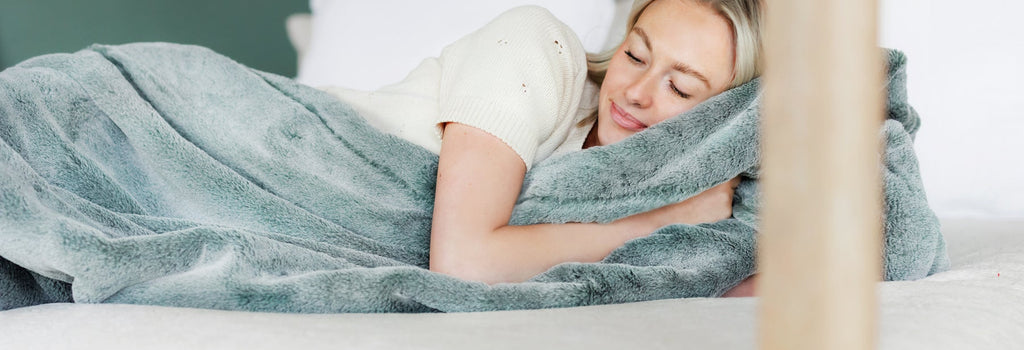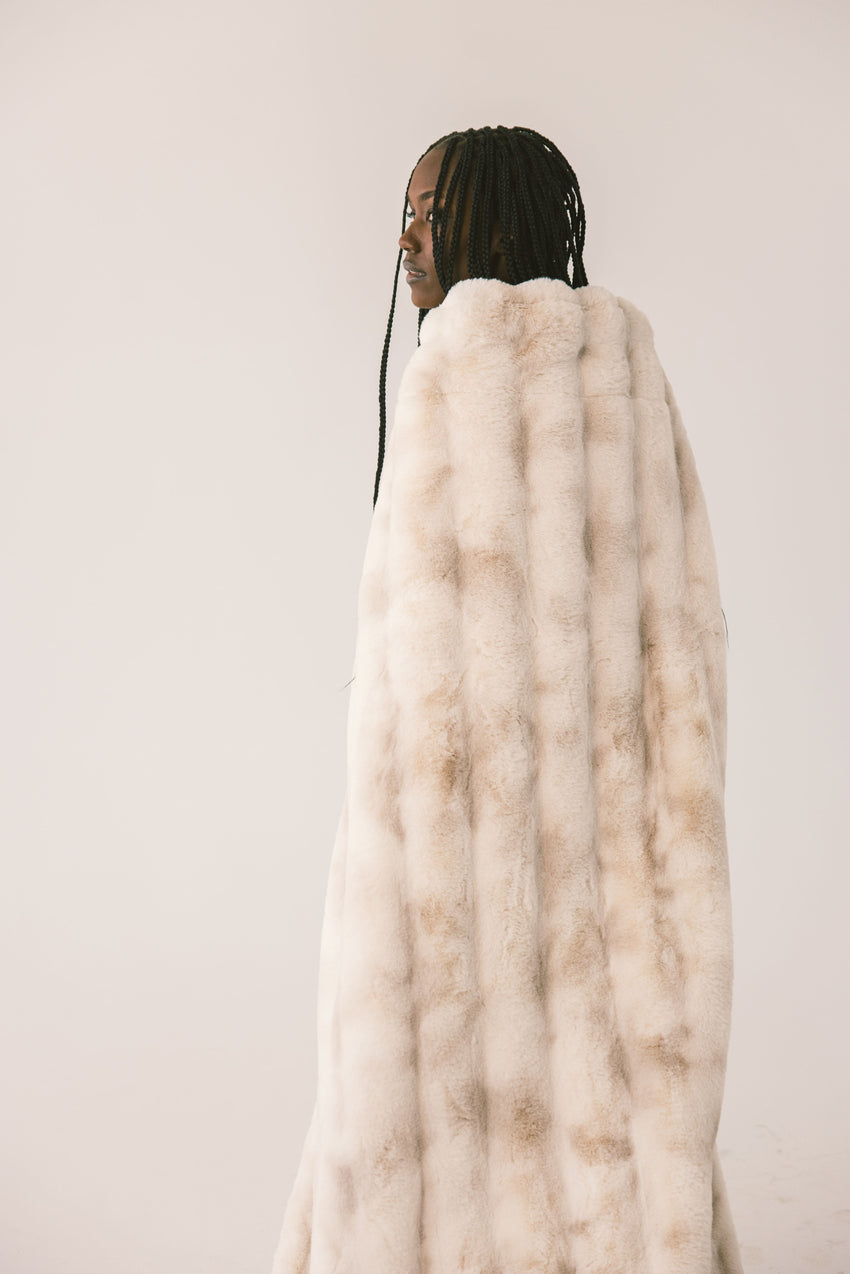There’s something undeniably soothing about wrapping yourself in a soft, cozy blanket at the end of a long day. Whether it’s the gentle weight of a weighted blanket or the plush feel of a Minky Couture blanket, the right sleeping blanket can make all the difference in how well you rest. But have you ever wondered why blankets help us sleep? Or how weighted blankets can be a game-changer for those struggling with insomnia? Let’s explore the science of comfort and why choosing the best blankets for sleeping can transform your nights.

The Benefits of Weighted Blankets
Weighted blankets have gained popularity in recent years, and for good reason. These blankets are designed to provide deep pressure stimulation (DPS) a gentle, even pressure that mimics the feeling of being hugged or swaddled. This pressure can help activate the parasympathetic nervous system, which promotes relaxation and reduces stress.
Some key benefits of weighted blankets include:
- Reduced anxiety and stress – The gentle pressure helps lower cortisol (the stress hormone) and increase serotonin, the feel-good neurotransmitter.
- Better sleep quality – By creating a calming effect on the nervous system, weighted blankets can help you fall asleep faster and stay asleep longer.
- Improved focus – Studies suggest that weighted blankets can benefit individuals with ADHD or sensory processing disorders by providing a soothing, grounding sensation.
Whether you struggle with occasional restlessness or chronic sleep issues, blankets that help you sleep can be a natural and effective way to improve your overall sleep quality.

Selecting the Best Blankets for Sleeping
Not all blankets are created equal. When choosing the best sleeping blankets, consider these factors:
1. Material Matters
Soft, breathable fabrics like Minky, cotton, or bamboo can enhance comfort without overheating. Minky Couture blankets, in particular, are known for their ultra-soft texture that adds a sense of luxury to your bedtime routine.
2. Weight and Thickness
If you’re considering a weighted blanket, choose one that’s around 10% of your body weight. This ensures enough pressure for relaxation without feeling too heavy or restrictive.
3. Temperature Regulation
Some people sleep hot, while others prefer extra warmth. Look for cooling weighted blankets if you tend to overheat, or plush, insulated options if you love a cozy, warm feel.
Finding the right sleeping blankets for adults is a personal journey, but investing in high-quality materials and the right weight can make a noticeable difference in your sleep patterns.

Weighted Blankets and Insomnia
If you’ve ever wondered, "Do weighted blankets help with insomnia?", the answer fo rmany people is yes. Insomnia can be triggered by stress, anxiety, or an overactive mind, making it difficult to relax and drift off to sleep.
Weighted blankets can help by:
✔ Encouraging melatonin production – The same deep pressure stimulation that lowers stress hormones also helps increase melatonin, the hormone responsible for sleep. ✔ Reducing nighttime movement – Tossing and turning can interrupt deep sleep cycles. A weighted blanket gently holds you in place, promoting more restful sleep. ✔ Calming the nervous system – Many people with anxiety-induced insomnia find that a weighted blanket helps quiet their racing thoughts, making it easier to relax.
While weighted blankets won’t cure insomnia overnight, they can be a valuable tool in your sleep toolkit. When combined with a calming bedtime routine weighted blankets make a great asset.

The Role of Blankets in Sleep
Have you ever noticed that even on warm nights, most people still prefer to sleep with a blanket? There’s a scientific reason for this.
Why Do We Need Blankets to Sleep?
Blankets provide a sense of security and warmth, which helps regulate body temperature and signals to the brain that it’s time to rest. This response is rooted in our biology. For example, babies are swaddled for comfort, and many animals burrow or curl up to sleep.
Even lightweight blankets can offer a psychological sense of protection, reducing subconscious stress levels and encouraging deeper relaxation.
So, whether it’s a plush Minky blanket or a breathable cotton throw, the simple act of covering up helps create an ideal sleep environment.
How Weighted Blankets Improve Sleep
Beyond their comforting weight, weighted blankets work with your body’s natural sleep processes to enhance overall restfulness. Here’s how:
- Mimicking Deep Touch Pressure Therapy – This form of gentle pressure is often used in therapeutic settings to calm the nervous system and improve sleep patterns.
- Regulating Heart Rate and Breathing – The calming effect of weighted blankets helps slow your heart rate and deepen your breathing, preparing your body for rest.
- Enhancing Sleep Quality Over Time – While some people notice an immediate difference, regular use of a weighted sleeping blanket can lead to long-term improvements in sleep cycles and overall relaxation. If you’re looking for the best blankets for sleeping, a Minky weighted blanket combines softness with soothing pressure which gives you the perfect balance of comfort and support for a better night’s sleep.

Wrap Yourself in Comfort
A good night’s sleep starts with the right blanket. Whether you’re searching for a sleeping blanket for adults, a plush and cozy throw, or a weighted blanket to ease insomnia, investing in high-quality materials can make all the difference. So, if you’re ready to improve your sleep, reduce stress, and experience ultimate comfort, consider adding a weighted Minky blanket to your bedtime routine. After all, the science of comfort is clear, when you feel safe, warm, and secure, deep, restful sleep follows.
- While Minky Couture blankets aren’t designed as official “weighted blankets,” many customers say they feel like one. Thanks to our signature lush, high-quality fabrics and generous sizing our blankets have that weighted feel. The dense, luxurious materials we use give our blankets a naturally heavier drape, which can mimic the calming, comforting sensation of a traditional weighted blanket but without the beads or fillers.




